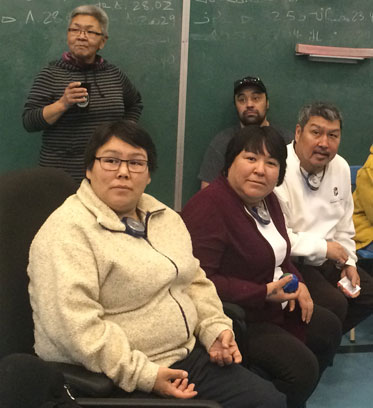Bruce Schenk, Director of IIRP Canada, explains, "The event will provide an opportunity for people to come together for conversations about what the justice system would look like if it were truly grounded in a more relational rather than a punitive or adversarial lens."
"This is an exciting time in our country, when we have interest in reconciliation with Indigenous people and in reform and innovation throughout the justice system," comments event panelist Barbara Tomporowski, co-chair of the Federal-Provincial-Territorial Working Group on Restorative Justice, which produced the report cited above. "These broad factors open up a new space for restorative justice."
A Senior Policy Analyst with the Saskatchewan Ministry of Justice, who teaches classes on restorative justice, mediation and community-based justice approaches at the Department of Justice Studies, University of Regina, Tomporowski thinks the event is timely.
Restorative justice can help address a range of issues in the justice system, including decreasing delays in justice, increasing access to justice, better meeting the needs of victims, preventing crime and reducing reoffending, she believes. While a large percentage of restorative justice now being practiced focuses on property crime and assault, Tomporowski points out that the federal government currently offers the Restorative Opportunities Program, which provides restorative justice in cases of serious violence committed by people who have already been convicted and are serving sentences.
"It is time to consider whole-scale system change using a restorative lens, in order to address the high rate of incarceration, family breakdown, substance abuse and suicide among Canada’s Indigenous people, including First Nations, Métis and Inuit," affirms panelist Gayle Desmeules.
Her company, TRUE DIALOGUE, provides consulting, training, facilitation and mediation services. Desmeules, a member of the Board of Governors for Portage College, Alberta, identifies as Métis, a group that traces their descent to both First Nations and European settlers and are recognized as one of Canada's Aboriginal peoples. "This change involves moving restorative practices from the margin to the mainstream to significantly impact the cycle of violence set in motion by colonization and residential schools," explains Desmeules. (See "Truth and Reconciliation Commission of Canada" for more information.)
The two-day event's restorative format will give attendees an opportunity not only to listen to talks by panelists and presenters, but also to participate in facilitated circle discussions to shape the new paradigm and guide the journey to get there.
"It’s an innovative model, to engage participants to discuss what is presented by the panelists," comments Tomporowski. "This is an opportunity to build on the growing momentum for restorative justice in Canada."
Demeules agrees. "A successful restorative framework would seek to restore health by reclaiming healthy relationships from the bottom-up, top-down and laterally, as a prevention and intervention response," she notes. "Since a core component of restorative practices is narrative inquiry, the Ottawa forum gives us the opportunity to explore the intention of restorative justice through an Indigenous or relational lens, not only for the betterment of Indigenous people but for the common future for humanity!"
Learn more about the event and register.
* "Restorative Justice in the Canadian Criminal Justice Sector," Federal-Provincial-Territorial Working Group on Restorative Justice, April 27, 2016.

